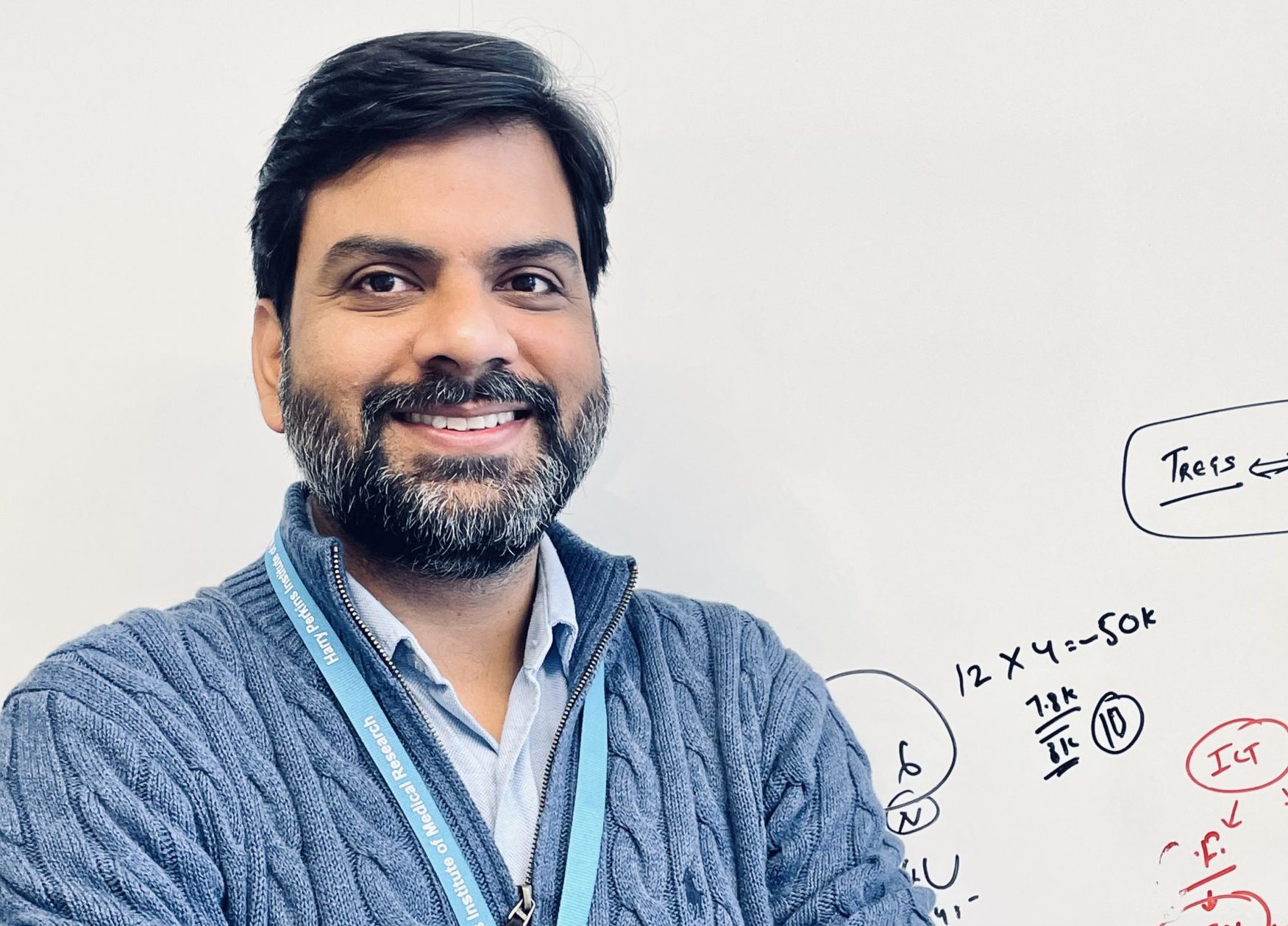
The Harry Perkins Institute’s Oncofetal Ecosystem Laboratory, established early in 2021, has received its first NHMRC Ideas Grant in the most recent grants round. This collaborative project run by the Perkins and Curtin University will investigate a new immunotherapy treatment for the most common type of primary liver cancer, hepatocellular carcinoma.
Title of grant: Oncofetal ecosystem in advanced Hepatocellular Carcinoma: Implications for Identifying Immunotherapy response
Value of grant: $1.19 million AUD for three years
This project, led by Dr Ankur Sharma – Head of the Perkins’ Oncofetal Ecosystem Lab and Senior Fellow at Curtin Medical School – will identify which patients will benefit from the new treatment because it does not currently work for all patients..
Each year, approximately 1,800 Australians succumb to hepatocellular carcinoma (HCC) and only 10 percent of patients with advanced HCC survive more than five years.
The lack of effective treatments option is one of the major causes of poor outcomes in HCC.
In 2020, the new combination of anti-VEGF-A (bevacizumab) which modulates the blood supply to the tumor and anti-PD-L1 (atezolizumab), which activates the body’s immune system, has demonstrated efficacy. However, this treatment is expensive, has significant associated toxicity and does not work for all patients.
“In this project, the research team will identify which patients will benefit from this new treatment [for this most common type of primary liver cancer, hepatocellular carcinoma] and provide biomarkers of therapy response, with the overall purpose of guiding clinical decision making – that is, ‘the right drug for the right patient’,” says Dr Sharma.
The impact
“Securing my first NHMRC grant within first year of my move to Australia and establishing my lab at Perth is very exciting and relieving news. The NHMRC funding allow us to establish our program in liver cancer and identify biomarkers to guide clinical decision,” says Dr Sharma.
“In fact, we call this project ‘DEFINER’, in-line with the goal to identify biomarkers: BlooD basEd Biomarker oF Immunotherapy response iN HEpatocellular CaRcinoma.
“More importantly these funds allow us to establish a collaborative program between Perth, Sydney and Singapore – to open the black box of immunotherapy response in HCC. It will lead to the development of imaging- and blood-based diagnostic tests to stratify responders.
“Our study will also allow us predict and test new immune checkpoint blockers (anti-CTLA4, anti-LAG3 etc.) for non-responder patients.”
Dr Sharma joined the Perkins in February 2021. Over the past five years he has been using technologies, particularly single cell analysis techniques, to develop a method of predicting the similarities between cancer and early development with a goal to predict which patients are likely to develop cancer and which cancers they are likely to have.
His work started by studying liver cancer and looking at why it develops.
The NHMRC Ideas Grants support innovative and creative research in the health and medical fields from discovery to implementation.
For more information about the NHMRC Ideas Grants, visit https://www.nhmrc.gov.au/funding/find-funding/ideas-grants.
